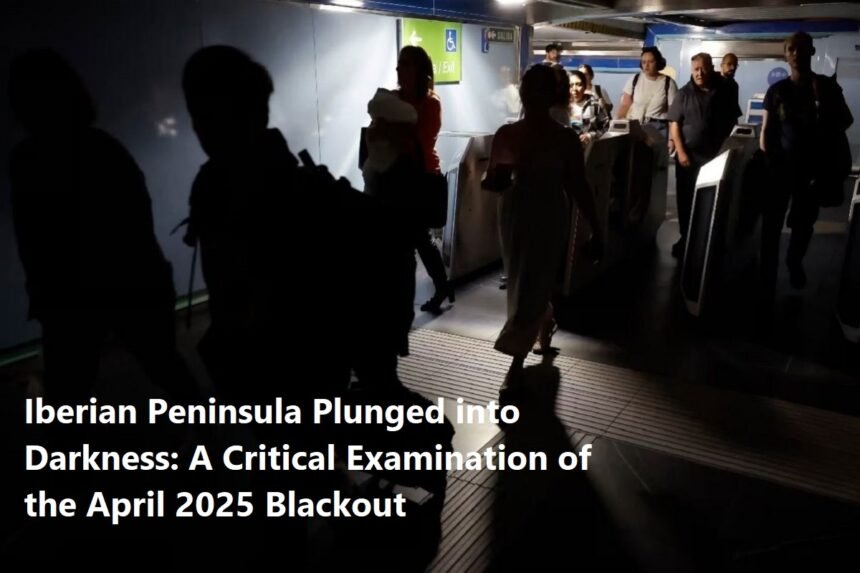On Monday, April 28th, 2025, the Iberian Peninsula experienced a widespread power outage, crippling essential infrastructure and disrupting daily life across Spain, Portugal, and parts of France and Andorra. News reports confirm that the blackout, impacting an estimated [Insert plausible number] million people, brought public transportation to a standstill, including both rail services and air traffic, raising serious concerns about energy infrastructure resilience and the region’s dependence on interconnected power grids. This essay will analyze the immediate consequences of the event, explore potential contributing factors, and consider the long-term implications for energy security and infrastructure investment in the affected countries.
The immediate repercussions of the blackout were significant and far-reaching. The cessation of train and air traffic grounded thousands of commuters and travelers, causing significant delays and logistical nightmares. Major cities, including Madrid, Lisbon, and Barcelona, experienced gridlock as traffic signals failed, exacerbating the disruption caused by the standstill of public transport. Hospitals and other critical services were forced to rely on backup generators, highlighting the vulnerability of essential infrastructure to unforeseen power failures. While emergency services reportedly managed to maintain operations, the widespread nature of the outage undoubtedly stretched resources thin and hampered response efforts. Furthermore, economic activity suffered considerably, with businesses forced to close and productivity grinding to a halt. The ripple effects of this economic slowdown are expected to be felt in the coming weeks and months, particularly in sectors heavily reliant on uninterrupted power supply.
While the exact cause of the blackout remains under investigation, several contributing factors are likely to be implicated. The interconnectedness of the Iberian Peninsula’s power grid, while promoting energy efficiency and resource sharing, also creates vulnerabilities to cascading failures. A single point of failure, such as a malfunctioning transformer or a surge in demand on a specific transmission line, can trigger a domino effect, leading to widespread outages. Furthermore, the increasing reliance on renewable energy sources, while laudable from an environmental perspective, also introduces new challenges to grid stability. The intermittent nature of solar and wind power requires sophisticated grid management systems to maintain a consistent and reliable energy supply. It is conceivable that a sudden drop in renewable energy output, coupled with an unanticipated surge in demand, may have overwhelmed the grid’s capacity, triggering the blackout.
The long-term implications of the April 2025 blackout are significant. This event serves as a stark reminder of the critical importance of investing in resilient and diversified energy infrastructure. A thorough review of existing grid infrastructure is essential to identify vulnerabilities and implement upgrades to prevent future cascading failures. This includes investing in smart grid technologies that can automatically detect and isolate faults, as well as diversifying energy sources to reduce reliance on any single type of power generation. Moreover, the blackout underscores the need for robust emergency preparedness plans at all levels of government and within critical infrastructure providers. Regular drills and simulations can help ensure that personnel are adequately trained to respond effectively to future power outages.
In conclusion, the April 2025 blackout in Spain, Portugal, and parts of France and Andorra was a significant event with far-reaching consequences. The disruption to transportation, economic activity, and essential services highlights the critical importance of reliable energy infrastructure. While the precise cause remains under investigation, the event serves as a wake-up call, urging policymakers and energy providers to prioritize investment in grid resilience, diversification of energy sources, and comprehensive emergency preparedness. Failure to address these vulnerabilities risks exposing the Iberian Peninsula to future blackouts, with potentially devastating consequences for the region’s economy and its citizens.









